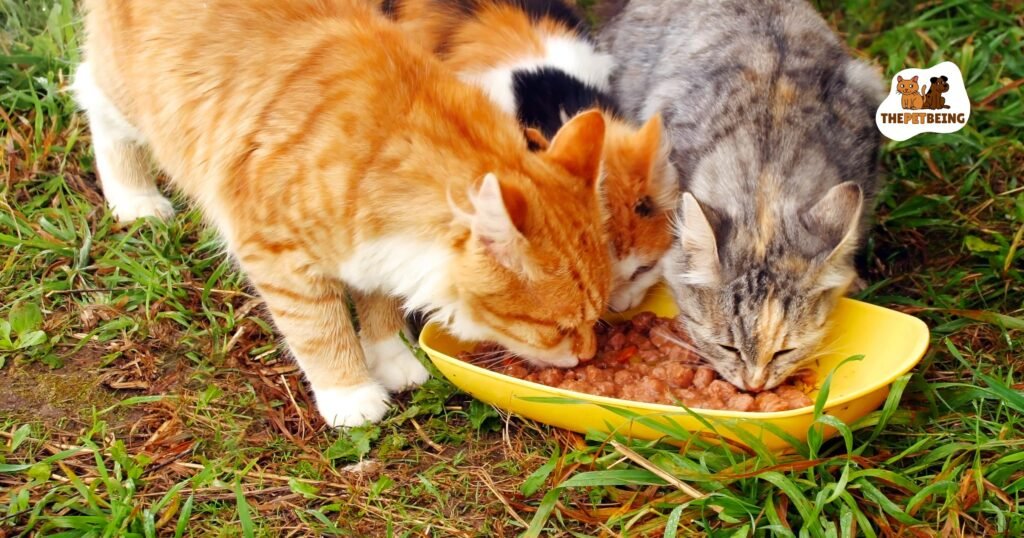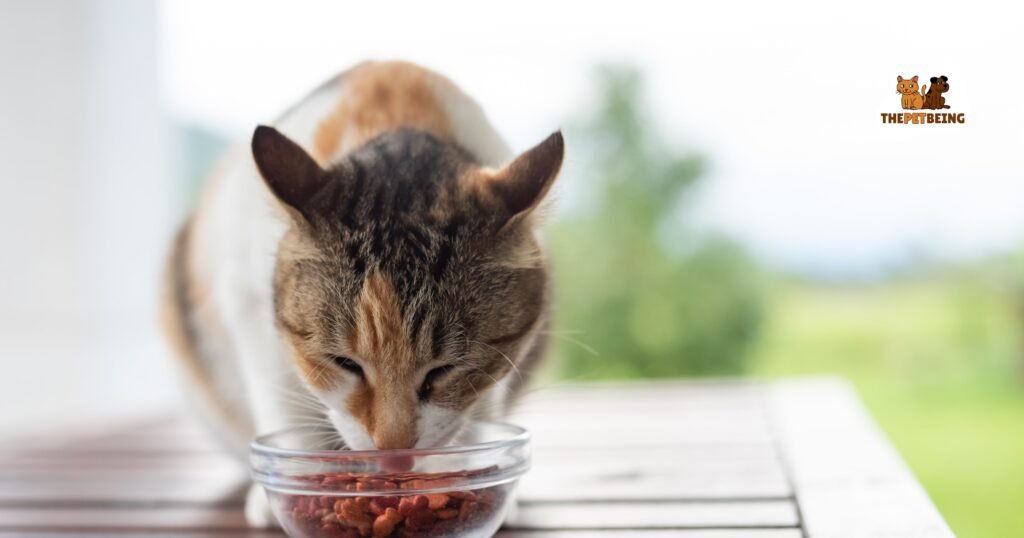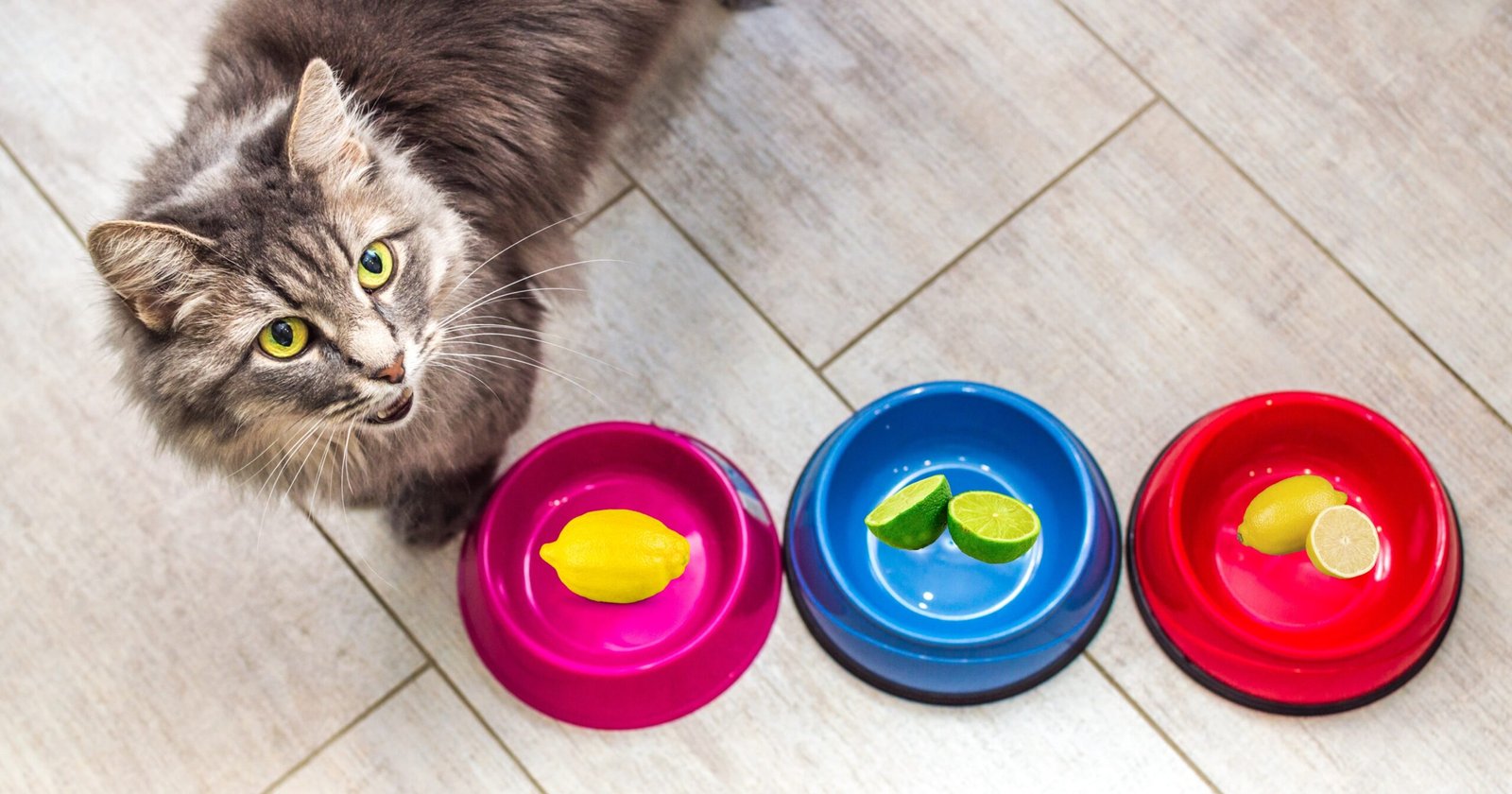Can Cats Eat Lemon? No, cats should not consume lemons. Lemons contain toxic substances for cats, such as essential oils like limonene and linalool, as well as chemicals called psoralens. Depending on the quantity and the specific part of the lemon ingested, a cat may exhibit symptoms ranging from gastrointestinal discomfort to depression.
Lemons are a common ingredient in our kitchens, known for their refreshing taste and many health benefits. But what about our furry friends? Can cats eat lemon? The short answer is no. Cats have a much different digestive system than humans, and what’s good for us may not be good for them.
While humans can enjoy lemons, these citrus fruits can be harmful to cats. Lemons contain essential oils and a substance called psoralens. So, it’s best to keep lemons, their peels, and any lemon-infused products away from your cats. Let’s delve deeper into why lemons are harmful to cats and what to do if your cat accidentally consumes lemon.
How much lemon is toxic to a cat?
Even a small quantity of lemon can be harmful to a cat. Why? Because lemons have substances that cats’ bodies can’t handle.
For instance, lemons have a substance called psoralen, which is bad for cats.
Also, the essential oils in lemons can upset a cat’s stomach and cause them to feel sick…
If a cat eats, licks, or even smells too much lemon, they can have a bad reaction.
This can be anything from being sick, feeling unwell, or showing signs of discomfort.
In some cases, it could even cause a cat to have tremors or go into shock, which is very serious.
So, to keep your cat safe, it’s best not to give them any lemon at all.
If your cat has eaten some lemon by accident, it’s a good idea to take them to a doctor straight away.
The doctor can check them over and make sure they’re okay.

What Are Symptoms of Lemon Poisoning in Cats?
Lemon poisoning in cats can manifest in several ways, impacting their health adversely.
If your feline friend has accidentally ingested lemon, it is crucial to know the symptoms to watch out for.
Let’s explore the typical signs of lemon poisoning in cats.
- Cats can show signs of distress or discomfort.
- They might start drooling excessively.
- Vomiting can occur shortly after they ingest lemon.
- Cats may show symptoms of diarrhea.
- You might notice a loss of appetite in your cat.
- The cat may become sluggish or overly tired.
- In severe cases, tremors can be a symptom.
- You might notice changes in their behavior, such as agitation.
- Excessive thirst can be another indication.
- Cats might excessively groom or lick their paws or body.
- In severe cases, a cat may go into shock.
- If these symptoms persist, immediate veterinary attention is necessary.

Can Cats Recover From Lemon Poisoning?
Yes, cats can recover from lemon poisoning if they get proper treatment quickly.
If a cat eats a lemon, the first step is to take away the lemon.
Then, the cat should be taken to a vet straight away.
The vet can check the cat and help it get better.
The cat may need to drink lots of water to flush out the lemon from its body.
In some cases, the vet may give the cat special medicine to help it feel better.
If the cat gets help soon after eating the lemon, it has a good chance of getting better.
But, if the cat is left without help, the lemon can make it very sick.
So, it’s very important to take a cat to the vet if it has eaten lemon.
After treatment, the cat will need to rest and be looked after until it’s fully recovered.

What should I do if my cat eats lemon?
If your cat eats lemon, don’t panic, but act fast.
Remove any remaining lemon from their reach.
Call your vet right away.
Tell them what happened and ask for advice.
They might want you to bring your cat in for a checkup.
Do not try to make your cat vomit.
This can cause more harm.
Clean your cat’s mouth gently with a soft, damp cloth.
This can help remove some lemon.
Remember, your cat needs your help.
Stay calm and act quickly.
After the vet visit, make sure your cat is comfortable and keep an eye on them.
Follow your vet’s instructions on feeding and drinking.
Conclusion
Can cats eat lemon? The short answer is no. Lemons are not safe for cats to eat. The citrus fruit can cause unpleasant symptoms like upset stomach, vomiting, and diarrhea. Even more concerning is that the oils and compounds in lemons can cause more serious issues, like depression or photosensitivity. If your cat manages to eat a lemon, it’s important to act quickly. Remove any remaining lemon, clean your cat’s mouth gently, and then call your vet for advice. It’s important not to induce vomiting, as this might cause more harm. Prompt treatment from a vet can help your cat recover, especially if the lemon consumption is caught early. Remember, it’s our job as pet owners to keep our furry friends safe, and that includes keeping lemons out of their reach.
FAQs
Can cats eat lemon?
No, cats should not eat lemons. Lemons have oils and compounds that can make cats sick. They can cause an upset stomach, vomiting, or even make your cat feel very sad. If a cat eats lemon, it’s important to call a vet quickly. The vet can help your cat feel better. Always remember to keep lemons far away from your cat.
What makes lemons dangerous for cats?
Lemons are dangerous for cats because they contain substances that are toxic to them. These substances can make cats very sick, causing problems like stomach upset, vomiting, and even sadness. On top of that, the strong smell of lemons is very unpleasant for cats. So, it’s best to keep lemons away from cats to keep them safe and healthy.
What happens if a cat ingests lemon?
If a cat eats lemon, it can get very sick. It may be vomiting, stomach upset, or diarrhea. Lemons can even make a cat feel sad. If a cat eats lemon, clean its mouth and call the vet right away. The vet can help the cat get better. Do not make the cat vomit, as it can be harmful. Always keep lemons away from cats.
















